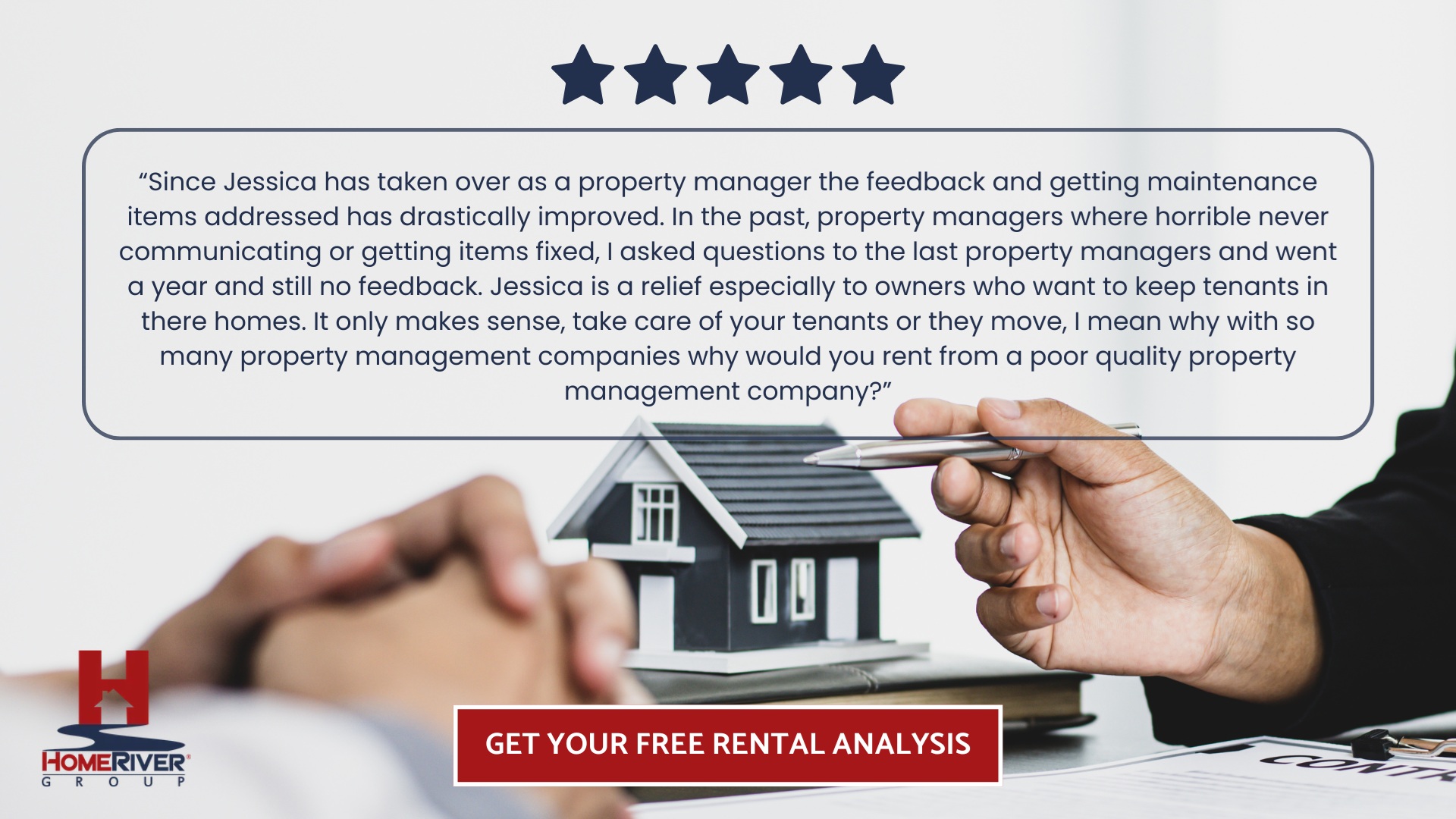
What Are Some Ways That Someone Can Save Money On Their Rent? Practical Tips
HomeRiver Group recognizes the importance of finding a harmonious balance between affordability and comfort in one's home. Our dedication to exceptional service combined with our local expertise positions us as your premier ally in navigating the complexities of the property management landscape. For many, saving money on rent is about making strategic decisions that align with personal and financial goals.
Securing affordable living arrangements remains a pivotal concern for both renters and buyers. The cost of renting can consume a substantial portion of an individual's or family's monthly budget, making the quest for methods to save on rent not just a financial strategy but a necessity for many. The challenge, therefore, lies in identifying effective ways to minimize rental expenses without sacrificing the quality of living.
This article will explore practical and effective strategies for saving money on rent, from negotiating lease terms to considering alternative living options.
Assessing Your Housing Needs
One of the most fundamental steps in saving money on rent is assessing your housing needs critically. This approach involves carefully examining what is truly essential for your living situation versus what can be categorized as a luxury or a non-essential preference.
Downsize For Savings
Consider the size of the apartment or home you want. Opting for a smaller space can lead to considerable savings. While a larger apartment might offer extra comfort or storage, ask yourself if you need the additional space. In many cases, renters find that a more compact living area fulfills their needs without the added cost.
Location: Balancing Convenience And Cost
Evaluate the location and its impact on rent prices. Properties situated in downtown areas or closer to major attractions and amenities generally command higher rents. However, if you can manage a slightly longer commute, you might find more affordable rental options in neighboring areas.
Amenities: Essential vs. Luxury
Luxurious amenities like swimming pools, fitness centers, and concierge services contribute to higher rent. Decide which amenities you will likely use regularly and which you can do without. In many cases, renters discover that opting for a property with fewer amenities significantly lowers their monthly expenses.
Strategic Decision-Making For Financial Goals
By strategically assessing your housing needs, you position yourself to make informed decisions that align with your financial goals. HomeRiver Group stands ready to offer exceptional service with local expertise. Our understanding of the nuances in various markets enables us to guide renters toward making choices that resonate with their needs while prioritizing their financial well-being.
Negotiating Rent Before Signing A Lease
Rent negotiations may seem daunting, but they present valuable opportunities to save money on rent. Here are strategic steps to effectively negotiate your rent before signing a lease:
Research Local Market Rates: Start by understanding the going rates in the neighborhood for similar properties. This information will arm you with evidence to support your case for lower rent.
Highlight Your Strengths as a Tenant: If you have a solid rental history, a steady income, and can commit to a longer lease term, highlight these points. Landlords value reliable tenants, and presenting yourself as one can give you leverage in negotiations.
Consider the Timing: The best time to negotiate is during off-peak rental seasons when landlords may struggle to find tenants. Awareness of these market dynamics, which can vary by region, can position you advantageously in rent discussions.
Be Open to Compromise: While you might have a specific rent reduction in mind, be prepared to meet the landlord halfway. This could include accepting a longer lease term in exchange for a lower monthly rate or agreeing to certain conditions, such as prepaying rent.
Communicate Effectively and Professionally: Approach the negotiation professionally. Present your case clearly, backed by your research and readiness to compromise. This demonstrates your seriousness and respect for the landlord’s position.
Get Everything in Writing: Once you reach an agreement, ensure all the negotiated terms are clearly stated in the lease. This step is crucial to avoid any future misunderstandings and to solidify the adjustments made to the rent.
Rethinking High-Cost Neighborhoods
One of the most effective strategies for saving money on rent is reevaluating the allure of high-cost neighborhoods. Certain areas' prestige or perceived convenience often comes with a significantly higher price tag without necessarily offering proportional lifestyle benefits.
The Cost Of Prestige
High-cost neighborhoods often carry a premium for historical significance, popular dining and shopping destinations, or proximity to business districts. While these amenities are desirable, they significantly inflate rental prices. Renters should assess whether these conveniences justify the extra expense or if similar amenities can be found elsewhere for a lower price.
Exploring Emerging Neighborhoods
Emerging or transitioning neighborhoods often offer more affordable rents while providing access to excellent amenities. These areas are typically in the process of development or revitalization, meaning renters can take advantage of lower costs before they rise with increasing popularity.
Weighing Commute And Cost
One trade-off of living outside high-cost neighborhoods is potentially facing a longer commute. However, with the rise of remote work and flexible schedules, this may not be as significant a drawback as in the past. Renters should weigh the monthly savings on rent against the cost and time of commuting. In many cases, the substantial reduction in housing costs can more than offset the inconvenience of a longer commute.
Utilizing HomeRiver Group's Expertise
Finding the right balance between affordability and lifestyle requires local knowledge and market insight. HomeRiver Group is perfectly positioned to help renters navigate the trade-offs of moving to more cost-effective neighborhoods. Our team can provide personalized recommendations based on your preferences, needs, and budget, ensuring your property is affordable and perfectly suited to your lifestyle.
Subletting And House Sitting Options
Exploring unconventional methods can yield significant savings on rental expenses. Two such strategies are subletting and house sitting, providing unique opportunities for renters to decrease costs.
Subletting
Subletting refers to renting your property to another individual or group for a certain period. This option is particularly viable for those who need to be away from their primary residence for an extended duration—for travel, work assignments, or other commitments. You can recover some or all of your rent by subletting your space, substantially reducing your housing expenses.
However, it's paramount first to check your lease agreement and obtain explicit permission from your property management company or landlord. Transparency and adherence to legal and contractual obligations ensure a smooth subletting process.
House Sitting
Another innovative approach to trimming rental expenses is house-sitting. House sitting involves taking care of someone else's property in their absence, which often allows you to live rent-free for the duration of your stay. This arrangement benefits the property owner, who ensures their home is supervised and maintained, and the sitter, who enjoys complimentary accommodation.
Start by networking within your community or using reputable online platforms that connect house sitters with homeowners. Demonstrating reliability and trustworthiness is paramount. Securing positive references from previous sites can significantly bolster your selection chances.
Looking Into Rent-To-Own Properties
Exploring rent-to-own properties can be a profitable real estate tip for individuals keen on transitioning from renters to homeowners while closely managing their budget. This innovative approach combines renting with the opportunity to purchase the property in the future, commonly after a set period.
Here’s how rent-to-own options can potentially lead to substantial savings on rent, ultimately aligning with your financial goals and homeownership dreams:
Understanding Rent-To-Own Agreements
Rent-to-own agreements typically consist of two critical components: the lease option and the purchase option. The lease option allows you to rent the property for a predetermined time, with a portion of your monthly rent potentially going toward the home's purchase price or down payment. This unique setup secures your living situation and invests in future property ownership.
The purchase option gives you the right, but not the obligation, to buy the property at an agreed-upon price before the lease expires. Electing this option could mean locking in a purchase price at today’s market rate, potentially saving you money if property values in the area increase over the lease term.
Financial Benefits Of Rent-To-Own Properties
One of the most compelling advantages of a rent-to-own agreement is the ability to gradually invest in homeownership without the immediate need for a hefty down payment. This can be particularly appealing for renters who are working on saving and are eager to own a home. Furthermore, a portion of your monthly rent payment contributing towards the home’s purchase price or down payment can mean that you effectively save money on rent, as these payments are an investment in your future property.
Moreover, locking in a purchase price at the beginning of your lease can provide financial protection against rising real estate markets. Should the property's value increase over the term of your lease, you still have the option to purchase at the originally agreed-upon price, securing a potential below-market rate and saving significantly on the overall cost of homeownership.
Navigating Rent-To-Own Agreements With Expertise
A rent-to-own agreement should be navigated with thorough understanding and expert advice. HomeRiver Group offers guidance to those interested in exploring rent-to-own properties. Our dedicated professionals provide insightful advice, helping renters make informed decisions that align with their financial and personal objectives.
Final Thoughts
Saving money on rent is more important than ever. Practical tips such as negotiating rent terms, opting for longer leases for better rates, sharing living spaces, or choosing locations just outside the prime areas can significantly reduce renters' monthly expenses. Taking advantage of programs for low-income renters and diligently searching for listings with utilities included can also alleviate the financial burden.
At HomeRiver Group, we understand the importance of these strategies in helping renters and buyers navigate the complexities of the housing market. Our commitment to providing exceptional service with local expertise ensures that your property needs are met with precision and care.
Let us help you find your way home while keeping your finances in check. Your property is our priority, and your savings are paramount.
Read also:
Understanding The Rental Market In Indianapolis: Average Rent Costs
Is Rental Income Taxable In Texas? What Landlords Need To Know
Best Places To Buy Investment Property In Texas: Where To Invest
Frequently Asked Questions About What Are Some Ways That Someone Can Save Money On Their Rent
Is getting a roommate a good way to save on rent?
Getting a roommate is one of the most effective ways to cut rental costs. Sharing your living space means you can split the rent, utility bills, and even groceries and household essentials. This strategy can significantly decrease the amount of money each individual spends on living expenses.
What are the best times of year to find cheaper rent?
The rental market tends to be more favorable for renters during the late fall and winter months. Demand is typically lower during this time, which can pressure landlords to offer more competitive pricing or incentives to fill vacancies. This can be a strategic time for renters to secure a lease at a potentially lower rate.
How can living in a less popular area reduce my rental costs?
Living in a neighborhood off the beaten path or slightly less popular can result in lower rent prices. These areas might offer fewer amenities or be located further from city centers, but the trade-off in affordability can be substantial. This approach requires balancing your lifestyle preferences with your budgetary constraints.
How can I find rent-controlled or rent-stabilized apartments?
To find rent-controlled or rent-stabilized apartments, start by researching the housing laws in your city or state, as these regulations can vary significantly. Local housing agencies, community groups, or online forums may provide listings or tips for finding such apartments. These housing types can offer below-market rent prices and legal protections against excessive increases.
Can downsizing my living space help me save on rent?
Downsizing to a smaller living space is a direct way to reduce your monthly rent. Besides the lower rent, smaller spaces often result in lower utility costs, less maintenance, and reduced spending on furnishings and decorations. Evaluate your space needs versus your desired lifestyle to determine if downsizing makes sense.
Are there benefits to renting an unfurnished apartment?
Renting an unfurnished apartment can offer cost savings both upfront and over time. Unfurnished apartments typically come with lower monthly rent than their furnished counterparts. While purchasing your furnishings requires an initial investment, you can find budget-friendly options and keep them for future use.










